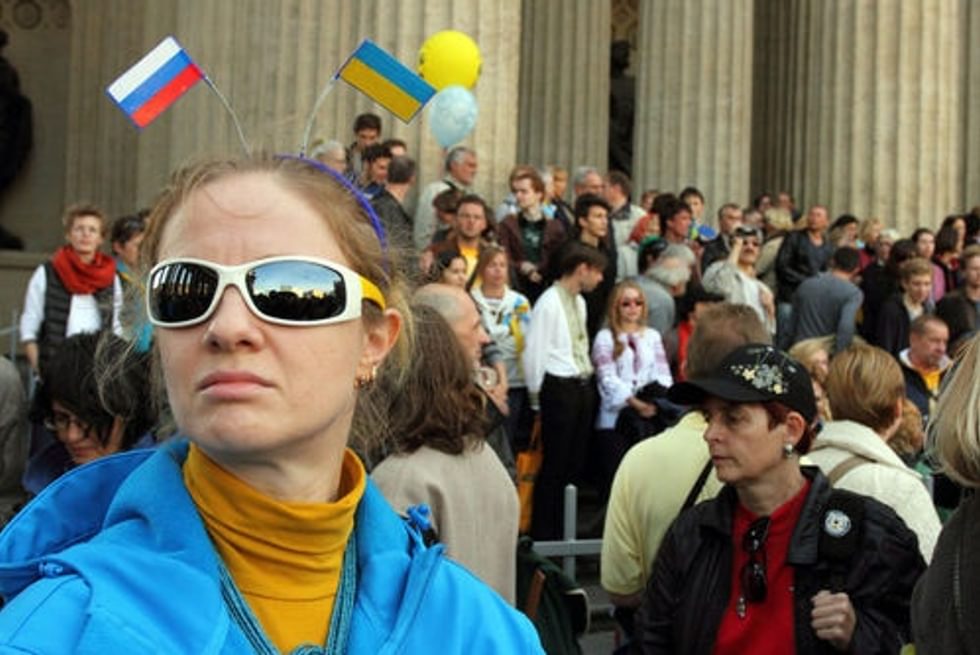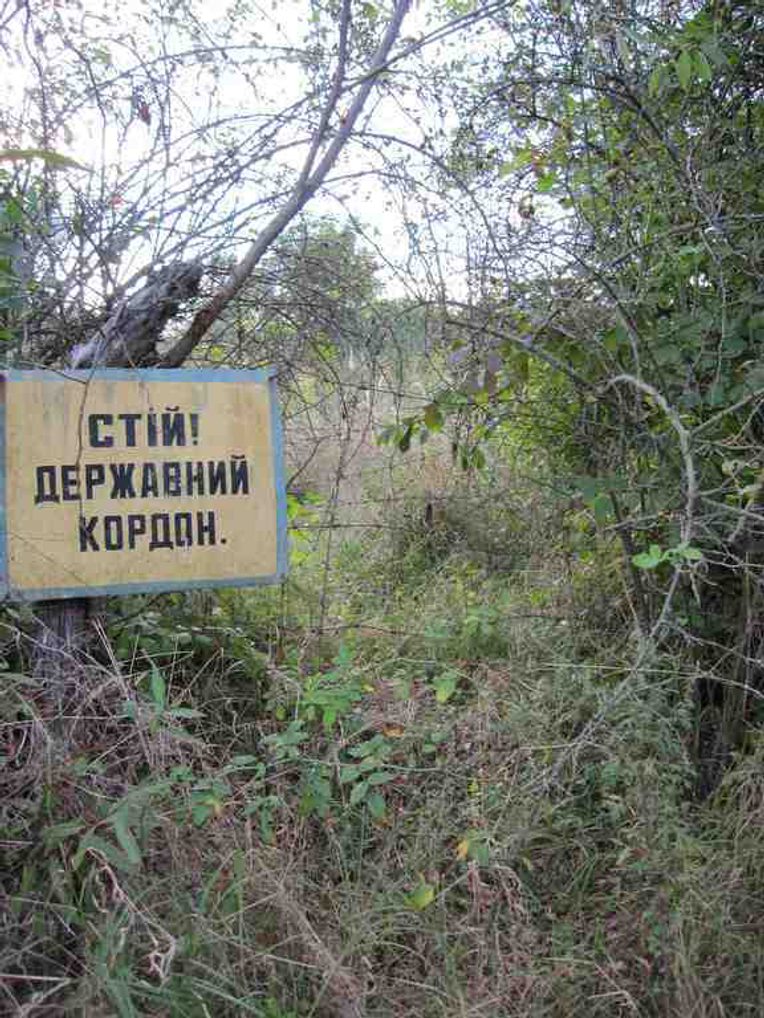The Tug of War: Notes From the Battlefield of Reflexivity
From the Series: Ukraine and Russia: The Agency of War
From the Series: Ukraine and Russia: The Agency of War


It is early summer 2014. We are gathered, by chance and force of circumstance, around a living room table in an apartment building on the concrete outskirts of a Ukrainian city: a Euromaidan activist from western Ukraine, an anti-Putin activist from St. Petersburg, a teacher with her four children recently displaced by the fighting near Donetsk, a Ukrainian scholar originally from the northwest, and myself, an American scholar with my two-year-old son. We are preparing the table for an improvised celebration: it is the birthday of the nine-year-old from Donetsk.
At this table, I am immediately confronted by the dilemma that has suffused every day of recent months: what is the role of a scholar in conflict? The activists ask me to take a position in Ukrainian debates about the war and to assist, through my work, a particular side in it. I make explicit how I have come to see my purpose: to seek to understand and to elucidate, but not to advocate. Above all, not to contribute to the deepening polarization that propels forward the machine of war.
I struggle with this. The country where I have been conducting research for over two decades, where much of my adult life has unfolded, where I was pregnant with my son, is at war on its own territory. Friends and colleagues of my age—the last generation to receive Soviet military ranks—live in realistic fear of conscription into an underfed army. They wonder who will provide for their children. Others pass their days not knowing whether elderly relatives in besieged cities are alive or dead. A few have seen children shot to death next to them in the streets of Donetsk. I am not indifferent.
I am not alone in this tug of war between the vocational responsibility to consider and to analyze and the human feelings that cry, nearly mute with rage and incomprehension in the face of needless suffering, “You know what is right. Do something—anything!” Around the table, the conversation turns to political action, and a rupture emerges. It is not the same rift that separates people on opposite sides of the fighting. It is not defined by regional, linguistic, or national identity nor by allegiance to a political cause. Instead, the division expresses the epistemological divide that separates two sides in this tug of war. It exposes a fundamental challenge at the heart of both this conflict and analysis of it.
A Manichean strain of thought runs through the discourse of both activists. The Russian activist expresses his support not only for the overthrow of Viktor Yanukovych but also for the United States invasion of Iraq and overthrow of Saddam Hussein: when confronted with absolute evil, he says, it’s necessary to act: “There’s black, and there’s white. There’s hot, and there’s cold.” Certainty suffuses his righteousness: he feels he knows the right way to face evil. From this feeling emanates his confidence in his and his fellow protesters’ right to adjudicate the legitimacy of a widely despised but elected government, to demand its departure on their terms. In his own telling, his morality includes neither consideration of possible consequences nor analysis of the political landscape in which he acts. Without articulating regret, he says he never imagined Maidan would lead to this situation, certainly not to this level of violence.
The teacher from Donetsk expresses no such assurance. She responds, saying she sees the possibility of shades of gray, of degrees of warmth, not only hot or cold. Thin blue and yellow threads, the colors of support for a united Ukraine, encircle her wrists and those of her children. But she is concerned with how some in the Donbas would receive, interpret, and respond to some of the ideas being articulated around the table. Her position is firmly perspectivist, not morally relativist. She knows intimately the human cost of this conflict: her own life is a witness to it. She interprets acts, including speech acts, in the light of how, based on her knowledge of a context, she expects others to interpret them. Like so many others compelled to flee their homes with young children in tow, she reflects on the effects of political action on the human beings in her charge. She is thinking about consequences. The activists are thinking about purity of action.
There is a strange family resemblance between the duality expressed around this table and much analysis of this conflict and the preceding protest movement. Some analysis expresses the activists’ epistemology: firm, sometimes a priori commitments to a particular understanding, certainty about what is true, and, sometimes, classification of other understandings as expressions of irrationality or submission to propaganda.
Other analysis mirrors the teacher’s interest in how beliefs affect the world and instead focuses on discovering what people believe to be true, for this is the basis upon which they act. This work privileges such knowledge as necessary for understanding why and how social transformation unfolds in particular ways; for theorizing political processes, including conflict, in ways that reflect the contexts in which they occur; and for imagining the range of actions people might undertake. In the context of such an approach, whether analysts think people’s views and actions are right or conform with scripts of rational behavior is irrelevant: an interest in how others see the world does not mean endorsing their points of view.
In the study of politics, efforts to comprehend how people understand and interpret their own politics are less common than accounts that offer, from some purportedly external or neutral vantage point, a firm story about what happened and why. In the context of Ukrainian politics, scholarly communities have devoted decades to defining the contours of identity politics and to tracing change through “transition” paradigms. Meanwhile, the questions of interpretation that mattered in the crucial days and weeks before Russian intervention became a determining factor in this conflict received far less attention and interest: for ordinary people in the Donbas, wherein resided the legitimacy of the state? How was sovereignty constituted? Perhaps most importantly, how did people in the regions understand economic forces, and what were the implications of those understandings for governance? Few scholars—and even fewer politicians—asked these questions.
In this company, these questions have a face. I look across the table at the children whose lives have been irrevocably disrupted by this conflict and know that tonight I will not sleep. The tug of war will continue: what is the right way to behave in this situation? At what point does one understand enough to act? Wherein lies my responsibility as a scholar and a human being? And, finally, what will happen if seekers of knowledge learn to place a bit less emphasis on the urge to know, and to be right, and instead take up the epistemology of the teacher from Donetsk: the uncomfortable, unsettling work of taking seriously the minds of others?